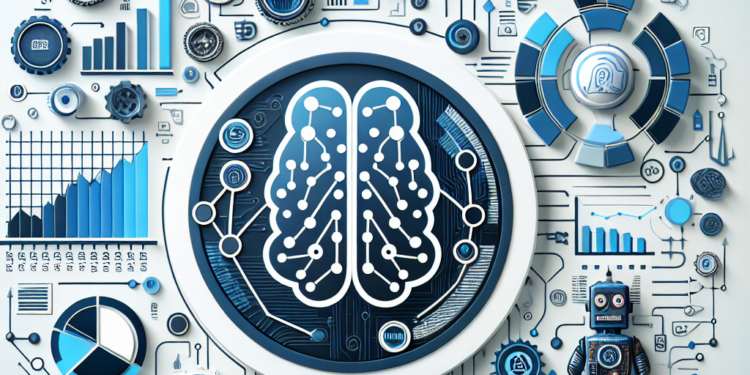Artificial Intelligence (AI) has revolutionized many aspects of our lives, and marketing is no exception. With the power of AI, marketers can now analyze vast amounts of data, personalize their campaigns, and optimize their strategies like never before. By harnessing the capabilities of AI, businesses can improve their marketing metrics and ultimately drive more success in their marketing endeavors.
One of the key ways AI can help improve marketing metrics is through data analysis. In today’s digital age, we are flooded with data from various sources such as social media, websites, and customer interactions. AI has the ability to process and analyze this data much faster and more accurately than humans ever could. By using machine learning algorithms, AI can uncover valuable insights that can help marketers better understand their target audience, identify trends, and make more informed decisions.
For example, AI can analyze customer behavior and preferences to create more personalized marketing campaigns. By understanding what drives individual customers to make a purchase, businesses can tailor their messages and offers to better meet the needs and interests of their audience. This not only increases the likelihood of conversion but also improves customer satisfaction and loyalty.
AI can also help marketers optimize their advertising efforts. By analyzing data on ad performance, such as click-through rates and conversion rates, AI can determine which ads are most effective and which ones need improvement. This allows marketers to allocate their advertising budget more efficiently and focus on the strategies that yield the best results. AI can even automate the process of A/B testing to quickly identify the most effective variations of ads and landing pages.
Another way AI can improve marketing metrics is through predictive analytics. By using historical data and machine learning algorithms, AI can forecast future trends and outcomes with a high degree of accuracy. This can help businesses develop more targeted and effective marketing strategies that are tailored to the specific needs of their audience. For example, AI can predict which customers are most likely to churn and offer personalized retention strategies to keep them engaged.
AI can also help businesses improve their customer service and support. By using natural language processing and sentiment analysis, AI can understand and respond to customer inquiries in real-time. This not only improves the customer experience but also helps businesses resolve issues faster and more efficiently. By providing personalized and timely support, businesses can increase customer satisfaction and loyalty, leading to higher retention rates and lifetime customer value.
In addition to improving customer retention and satisfaction, AI can also help businesses acquire new customers. By analyzing data on customer behavior, preferences, and demographic information, AI can identify potential leads and target them with personalized marketing messages. This can help businesses expand their reach and attract new customers who are more likely to convert.
AI can also optimize sales processes by providing insights into customer behavior and preferences. By analyzing data on past purchases, browsing history, and interactions with the brand, AI can predict which products or services are most likely to resonate with individual customers. This allows businesses to tailor their sales pitches and offers to better meet the needs and interests of their audience, increasing the likelihood of conversion.
Overall, AI has the potential to revolutionize marketing metrics and drive more success in marketing campaigns. By harnessing the power of AI, businesses can analyze data more effectively, personalize their campaigns, optimize their strategies, and improve customer satisfaction. By leveraging AI technologies, businesses can stay ahead of the competition and drive more results in their marketing efforts.













